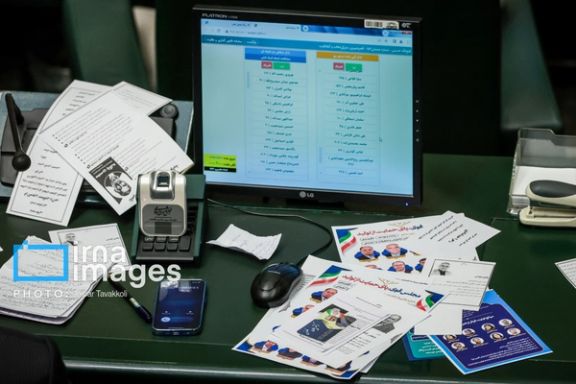Two reformists on the president’s list; Mohammad Reza Zafarghandi as Miniser of Health and Ahmad Maydari as Minister of Labor, as well as female nominee Farzaneh Sadegh as Minister of Housing and Urban Planning, are likely to face the strongest opposition in the Iranian Parliament (Majlies).
There is also Alireza Kazemi for the Ministry of Education, who is a hardliner but without the minimal credentials needed for the post.
Ahmad Fatemi, a member of the Majles Social Affairs Committee, stated that lawmakers hold a negative view toward Ahmad Maydari and Zafarghandi. He also noted significant opposition to Ms. Sadegh’s nomination but he insisted that the opposition is based on technical matters rather than gender issues. Others have a different opinion and believe hardliners would oppose almost any female candidate.
He added that there is also some opposition to Mohsen Paknejad as oil minister due to his possible links to former centrist oil minister Bijan Zanganeh, but Paknejad has assured the lawmakers that he is not associated with Zanganeh.
Commentator Jahanbakhsh Mohebbinia criticized the qualifications of several proposed ministers, stating that they fall short of the standards expected for cabinet positions and can only be generously described as experts. He accused some nominees of being opportunists who secured their spots through lobbying by Pezeshkian's political rivals, suggesting that their inclusion on Pezeshkian's list raises suspicions.
Journalist Zaynab Ghobishavi noted that, aside from three ministers with reformist backgrounds, the remaining candidates for ministerial posts largely belong to factions best described as Pezeshkian's rivals. Iran International TV's prominent news bulletin, First Title, identified Maydari, Zafarghandi, and Gholamreza Nouri Ghezelche (nominated for the Ministry of Agriculture) as the only "reformists" on Pezeshkian's list.
Although Intelligence Minister nominee Esmail Khatib and Interior Minister nominee Eskandar Momeni are facing the most serious criticism from the press and public, Mohebbinia stated that both are unlikely to encounter any issues in securing a vote of confidence from the Majles.
Massoud Zehabioun, a member of the task force to propose candidates to the president has said that despite parliamentary opposition to Ms. Sadegh's nomination as roads minister, she is in a better position in terms of her educational credentials and work experience than the two previous road ministers. She has studied Urban Planning and has a long experience in working as a Deputy Minister of Roads and Urban Planning.
If Sadegh secures the Majles' vote of confidence, she will become the second woman to hold a ministerial position in the Islamic Republic. The first was Marziyeh Vahid Dastgerdi, who served as Health Minister in President Ahmadinejad's cabinet.
Zehabioun emphasized that Sadegh's nomination should be evaluated based on her expertise rather than any bias against female officials. Meanwhile, Sobhan Nazari, a transportation activist, praised Ms. Sadegh's career progression, attributing it to her expertise and sound decision-making.
Teachers Trade Union activist Ali Poursoleiman has characterized Alireza Kazemi criticized Alireza Kazemi, labeling him as "a dogmatic, inefficient, and unsuccessful manager." He urged Pezeshkian to reconsider Kazemi's nomination to protect his own public reputation. Poursoleiman also recommended that Pezeshkian appoint a woman as Minister of Education to demonstrate his commitment to gender equality.
Iranian journalist Leila Farhadi wrote that the inclusion of Kazemi on Pezeshkian's list was both controversial and surprising to observers. She added that Kazemi's plans for the ministry's future appear to be merely a rehash of documents previously presented to the Majles by former ministers.







